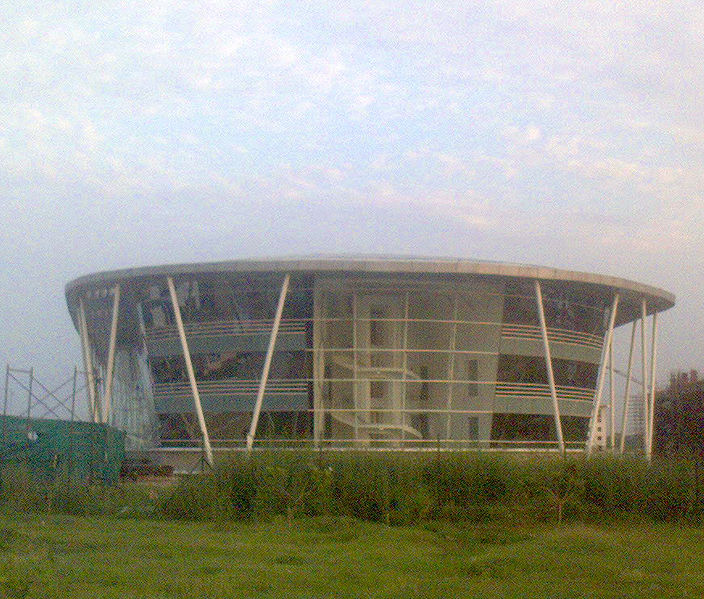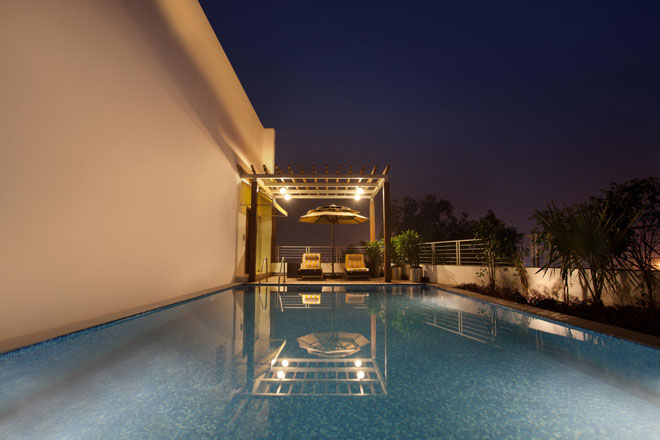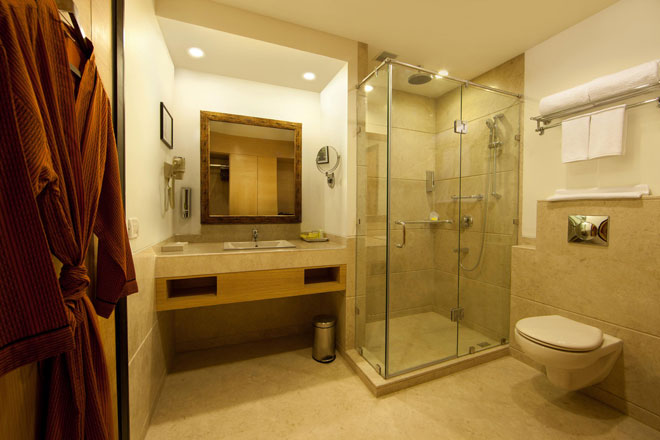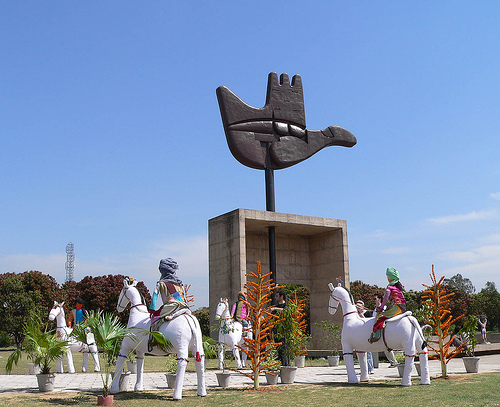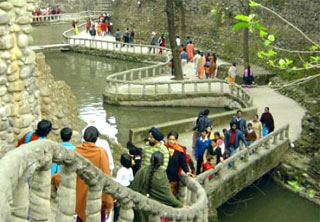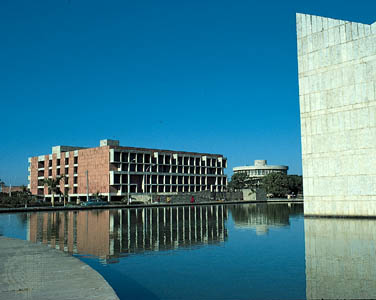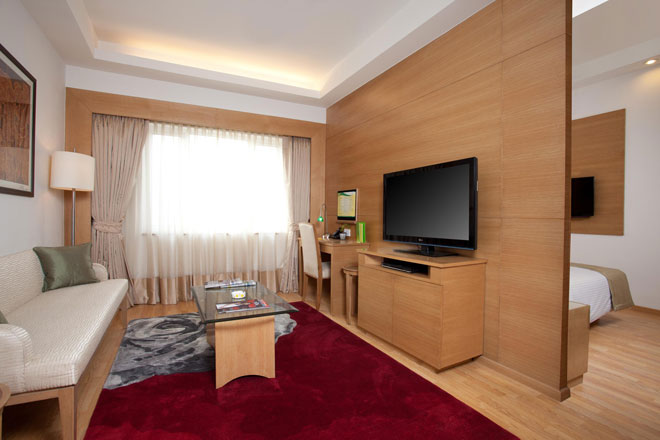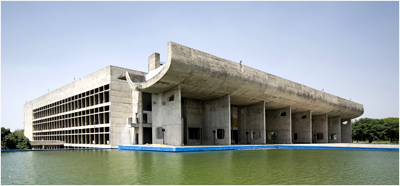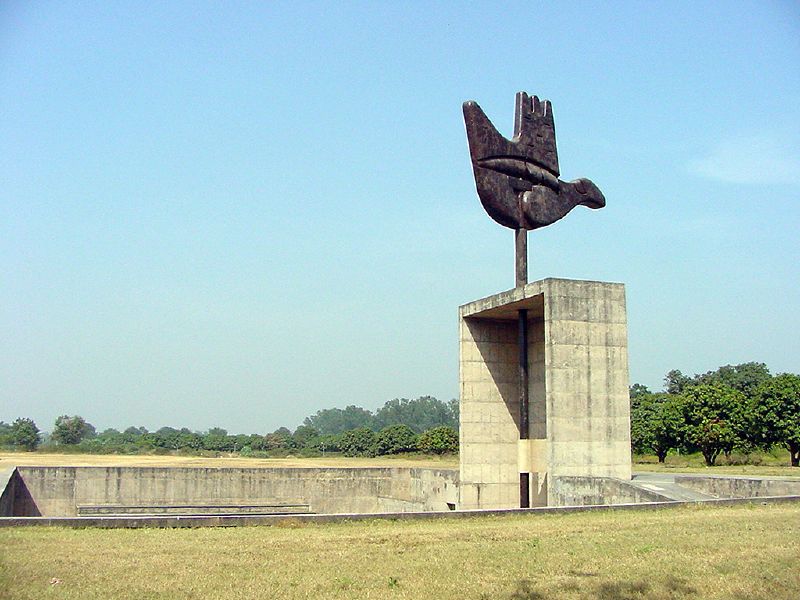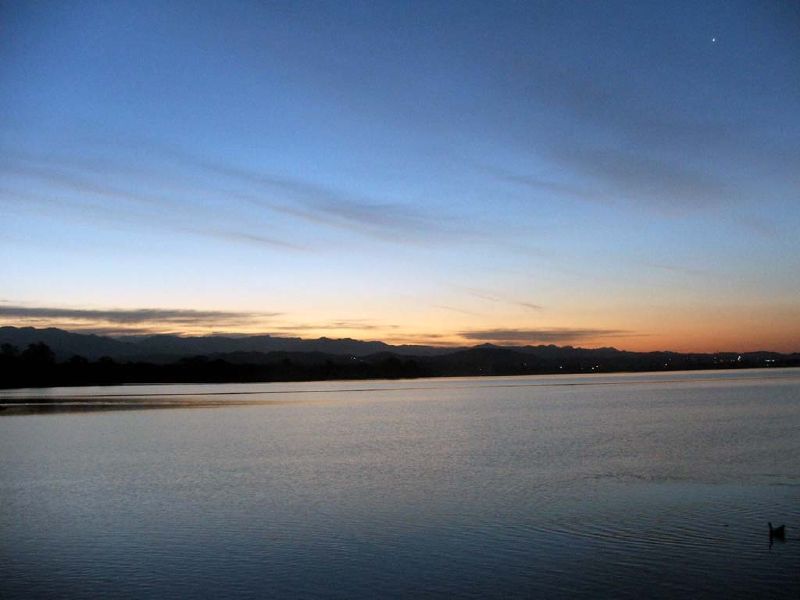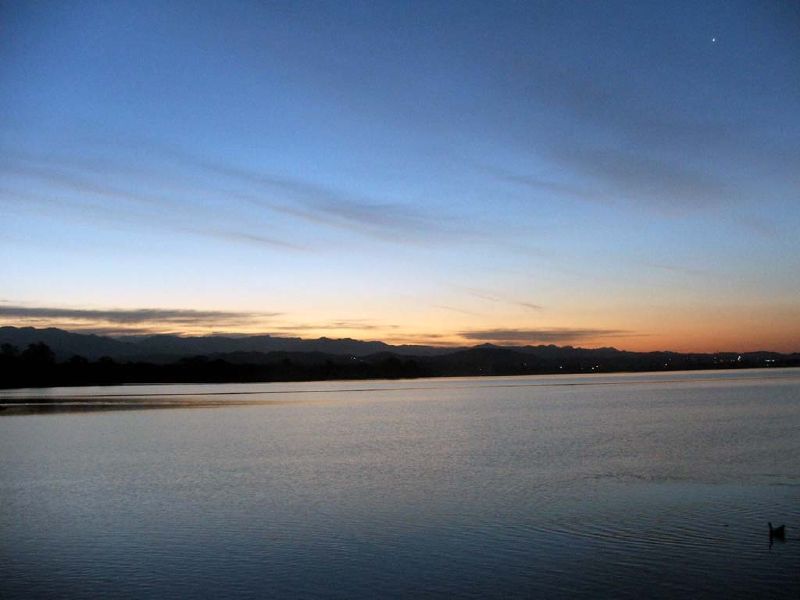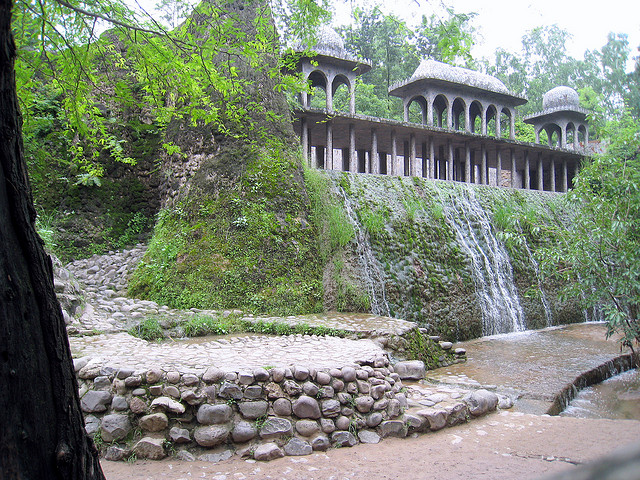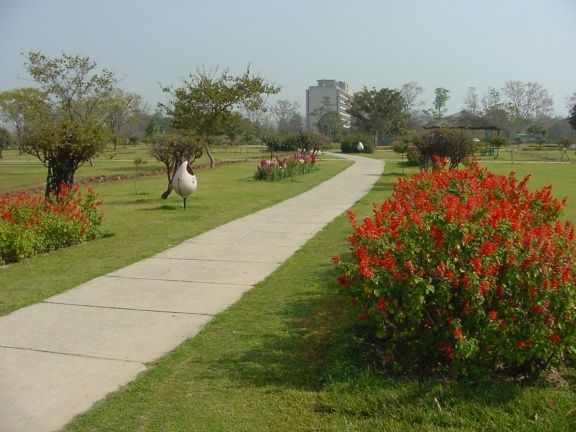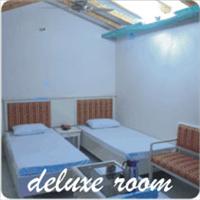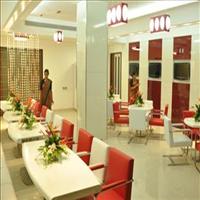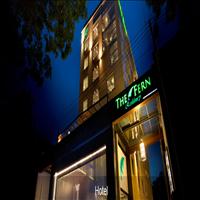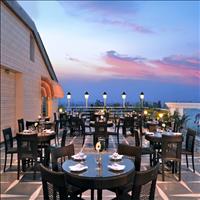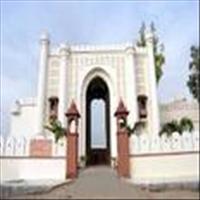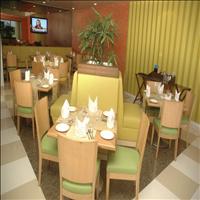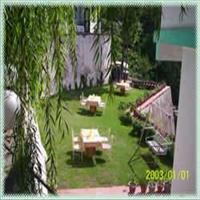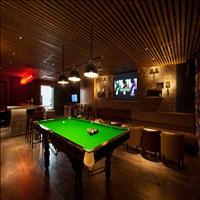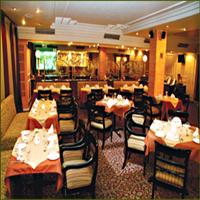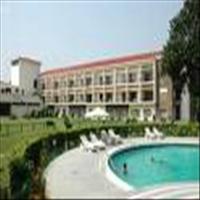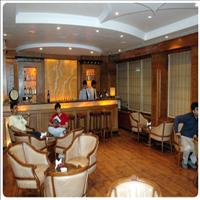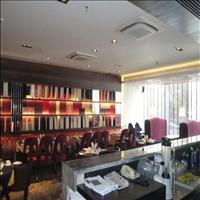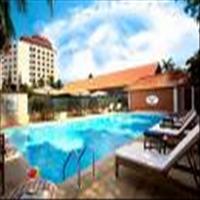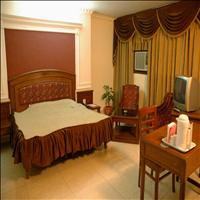Chandigarh
The first planned city of India
General Information
District: Chandigarh, State: Chandigarh, India
Area: 69.63 Sq. Km.
Languages Spoken: Punjabi, Hindi, English
Long Distance Code: +91-172
Importance: Capital of two states, Haryana and Punjab and the first planned city of India
Best Time to Visit: October to March
Description
Chandigarh, the present capital city of the States of both Punjab and Haryana is the first planned city of India. However, it does not belong to either of the States. It is a Union Territory, administered by the Government of India. The city is very modern and has derived its name from a temple on the slope of the Sivalik hill, Chandi Mandir (deity Chandi, goddess of power), and a fort or "garh" beyond the temple, called Chandigarh.Location
Chandigarh is just 248km away from New Delhi the capital of India. It is bordered by the states of Punjab and Haryana. Being located at the foothills of the Shivaliks it also provides and innumerable tourist spots within the city and around.
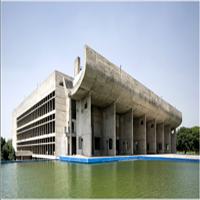 The Capitol Complex is the main area of Chandigarh and the most spectacular work of Le Corbusier, the architect of Chandigarh. It is the seat of the government of the States of Punjab and Haryana and also a major tourist attraction. Standing aloof at the foothills of the city of Chandigarh, like the Grecian Acropolis, the geometrical concrete buildings, rise from the mounds as giant playful sculptures dominating the skyline of Chandigarh. There are three major buildings to be visited in the complex.
The Capitol Complex is the main area of Chandigarh and the most spectacular work of Le Corbusier, the architect of Chandigarh. It is the seat of the government of the States of Punjab and Haryana and also a major tourist attraction. Standing aloof at the foothills of the city of Chandigarh, like the Grecian Acropolis, the geometrical concrete buildings, rise from the mounds as giant playful sculptures dominating the skyline of Chandigarh. There are three major buildings to be visited in the complex.\r\n1. The Secretariat: It is the largest building in the complex intended as a work place for about 4000 people. This huge multi-storeyed structure has a long line of identical sun breakers, broken by varied heights and projections, together with a roof containing towers, funnels, pavilions and a cafetaria jutting out like an art object placed on a pedestal.
\r\n2. The Assembly: This building is the best of the architectural genius of Le Corbusier. An imposing portico with a hand painted Mural by Corbusier himself, is the prime attraction of this magnificent structure. The three features emerging from the roof: a powerful cupola housing the main assembly chamber; a pyramidal tower meant for the ‘upper house’ and housing the Haryana Legislature; and a simple cuboid tower providing access to the roof, combine to break the silhouette of the building and lend a certain grace to the structure.
\r\n3. The High Court: The High Court of Chandigarh is also a linear block, with the main façade towards the piazza. It has a rhythmic arcade of a parasol-like double roof, which shades the entire building in summer. Keeping in view the special dignity of the honourable judges, an exclusive entry has been created for them through a high portico resting on three giant pylons. Very much in the tradition of the ceremonial gateway of the Buland Darwaza of Fatehpur Sikri, this grand entrance with its awesome scale does manifest the majesty of law to those who enter its portals.
\r\nAll the three are interlocked to one another as part of a subtle visual composition, delicately balanced, and enclosing grandiose spaces. Their ‘raw’ finish and rough concrete surfaces which Le Corbusier insisted upon has become a craze all over the world now. Between the silhouettes of these magnificent edifices is juxtaposed the Chandigarh city's most popular visible symbol: the Open Hand.\r\n
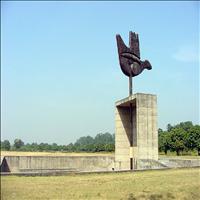 Between the silhouettes of the magnificent edifices of the Capitol Complex is juxtaposed the Chandigarh city's most popular visible symbol: the Open Hand. One of the most significant monuments planned by Le Corbusier in Chandigarh, is the symbol that denotes the city. Rising 85 feet high from a sunken trench, a giant hand in metal sheets is designed to rotate. It signifies the virtue of the city: Open to recieve and open to give.
Between the silhouettes of the magnificent edifices of the Capitol Complex is juxtaposed the Chandigarh city's most popular visible symbol: the Open Hand. One of the most significant monuments planned by Le Corbusier in Chandigarh, is the symbol that denotes the city. Rising 85 feet high from a sunken trench, a giant hand in metal sheets is designed to rotate. It signifies the virtue of the city: Open to recieve and open to give.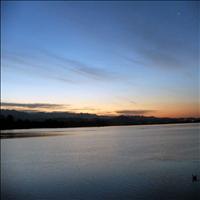 One of the largest man made lakes in India, the Sukhna Lake, is a favourite recreational spot of the nature-loving people of Chandigarh. Created by building an artificial dam on a seasonal stream, Chandigarh's Sukhna Lake is spread over a large area. A 2-km-long promenade along the lakeshore is a popular place to be visited in Chandigarh by the tourists and localities alike. Water sports like boating and watersurfing can be undretaken here. In winters migratory birds like the cranes and storks flock the lake offering a great opportunity for the bird lovers.
One of the largest man made lakes in India, the Sukhna Lake, is a favourite recreational spot of the nature-loving people of Chandigarh. Created by building an artificial dam on a seasonal stream, Chandigarh's Sukhna Lake is spread over a large area. A 2-km-long promenade along the lakeshore is a popular place to be visited in Chandigarh by the tourists and localities alike. Water sports like boating and watersurfing can be undretaken here. In winters migratory birds like the cranes and storks flock the lake offering a great opportunity for the bird lovers.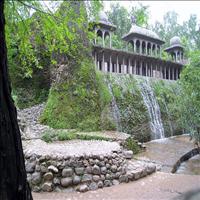 The first planned city of India is an architectural marvel. But what stands out in this city is the Rock Garden. A marvel in itself created by Nek Chand out of the waste material found around. The urban waste material turned into creative patterns and textures, mute rocks turned into art objects attract tourists to Chandigarh. A visit to the Rock Garden is a must for all the tourists traveling to Chandigarh. It is perhaps the world's most poignant and salient statement of the possibility of finding beauty in the unexpected and accidental. It expresses the fragility of the environment, the need for conservation of the earth's natural resources, the importance of balancing industrial development and sound environmental practices. Above all, it is a community's testament of appreciation for art, expressing ideas and problems in a universal language.
The first planned city of India is an architectural marvel. But what stands out in this city is the Rock Garden. A marvel in itself created by Nek Chand out of the waste material found around. The urban waste material turned into creative patterns and textures, mute rocks turned into art objects attract tourists to Chandigarh. A visit to the Rock Garden is a must for all the tourists traveling to Chandigarh. It is perhaps the world's most poignant and salient statement of the possibility of finding beauty in the unexpected and accidental. It expresses the fragility of the environment, the need for conservation of the earth's natural resources, the importance of balancing industrial development and sound environmental practices. Above all, it is a community's testament of appreciation for art, expressing ideas and problems in a universal language.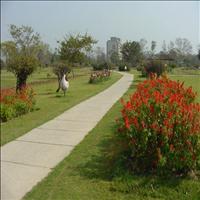 Along with the architectural marvels, this planned city of India has many parks to be visited. The long strecth of green known as the Leisure Valley which nearly surrounds the city from one end to the other. There are many beautiful gardens worth a visit in the Leisure valley. The Rose Garden with an area of 25 hectares is one of the largest in Asia and home to a thousand varities of roses. The other prominent gardens in the area are Garden of Tranquility, Garden of Rare Plants, Garden of Annuals, the Bougainvillea Garden, Botanical Garden, and the Garden of Aromatic Plants which are worth a visit.
Along with the architectural marvels, this planned city of India has many parks to be visited. The long strecth of green known as the Leisure Valley which nearly surrounds the city from one end to the other. There are many beautiful gardens worth a visit in the Leisure valley. The Rose Garden with an area of 25 hectares is one of the largest in Asia and home to a thousand varities of roses. The other prominent gardens in the area are Garden of Tranquility, Garden of Rare Plants, Garden of Annuals, the Bougainvillea Garden, Botanical Garden, and the Garden of Aromatic Plants which are worth a visit.Himachal Tour With Golden Triangle / PI-0311 (12 Days / 11 Nights)
Delhi-Manali-Kullu-Shimla-Chandigarh-Delhi-Agra-Jaipur-Delhi
Discover the magical land of Himachal Pradesh; this experience oriented tour brings forth different shades of the multi-hued canvas of Indian panorama. Covering the historic Golden Triangle cities that offers the history and cultural splendor of the country through its beautiful monuments, the tour also offers the added attraction of Himachal Pradesh state attractions too.
Detailed Itinerary
Day 1 : Delhi
Day 2 : Delhi-Manali
Day 3 : Manali
Day 4 : Manali-Kullu
Day 5 : Kullu-Shimla
Day 6 : Shimla
Day 7 : Shimla - Chandigarh
Day 8 : Chandigarh - Delhi
Day 9 : Delhi - Agra
Day 10 : Agra - Jaipur
Day 11 : Jaipur
Day 12 : Jaipur - Delhi
Delhi-Manali-Kullu-Shimla-Chandigarh-Delhi-Agra-Jaipur-Delhi
Discover the magical land of Himachal Pradesh; this experience oriented tour brings forth different shades of the multi-hued canvas of Indian panorama. Covering the historic Golden Triangle cities that offers the history and cultural splendor of the country through its beautiful monuments, the tour also offers the added attraction of Himachal Pradesh state attractions too.
Detailed Itinerary
Day 1 : Delhi
Day 2 : Delhi-Manali
Day 3 : Manali
Day 4 : Manali-Kullu
Day 5 : Kullu-Shimla
Day 6 : Shimla
Day 7 : Shimla - Chandigarh
Day 8 : Chandigarh - Delhi
Day 9 : Delhi - Agra
Day 10 : Agra - Jaipur
Day 11 : Jaipur
Day 12 : Jaipur - Delhi
Himachal Heritage Tour / PI-0472 (10 Days / 9 Nights)
Chandigarh-Nalagarh-Chail-Shimla-Manali-Palampur-Dharamshala-Paragpur-Pragpur-Chandigarh
This Himachal heritage tour attracts tourists from all over the world with its mysticity and exoticism. Tourists are treated to a cultural extravaganza, an experience that comes from its cultural heritage, natural beauty and lifestyle of the people. The trip gives you an insight into some of the most popular destinations of the state ranging from Manali, Dharamshala, Chandigarh to Paragpur.
Detailed Itinerary
Day 1 : Chandigarh - Nalagarh
Day 2 : Nalagarh - Chail
Day 3 : Chail - Shimla
Day 4 : Shimla - Manali
Day 5 : Manali
Day 6 : Manali
Day 7 : Manali - Palampur
Day 8 : Palampur - Dharamshala
Day 9 : Dharamshala-Paragpur
Day 10 : Pragpur-Chandigarh
Chandigarh-Nalagarh-Chail-Shimla-Manali-Palampur-Dharamshala-Paragpur-Pragpur-Chandigarh
This Himachal heritage tour attracts tourists from all over the world with its mysticity and exoticism. Tourists are treated to a cultural extravaganza, an experience that comes from its cultural heritage, natural beauty and lifestyle of the people. The trip gives you an insight into some of the most popular destinations of the state ranging from Manali, Dharamshala, Chandigarh to Paragpur.
Detailed Itinerary
Day 1 : Chandigarh - Nalagarh
Day 2 : Nalagarh - Chail
Day 3 : Chail - Shimla
Day 4 : Shimla - Manali
Day 5 : Manali
Day 6 : Manali
Day 7 : Manali - Palampur
Day 8 : Palampur - Dharamshala
Day 9 : Dharamshala-Paragpur
Day 10 : Pragpur-Chandigarh
Dussera Festival of Kullu Valley / PI-074 (10 Days / 9 Nights)
Delhi-Chandigarh-Manali-Chandigarh-Delhi
Beyond forbidding heights of the Greater Himalayas, and by the banks of the shining river Beas, lay the fabled ''Silver Valley'' - Kullu also known as the Valley of the Living Gods. It is here that the famous annual Kullu Dussera festival is held in the month of October. The festival celebrates the triumph of the God Ram ( God of Hindus from the epic - Ramayana ) over evil. One can experience the rich culture along with the history and mythology attached to the celebrations, typical of the hilly regions in the North India. More than one hundred gods and goddesses mounted on colorful palanquins participate in the procession which is the most important part of the festival here. The ceremony feels as if the doors of heaven have been opened and the gods have come down to the earth to rejoice. This is also the time when the International Folk Festival is celebrated. Treat your self to the unique celebration with the beauty of conifer hills climbing upto the snowcapped Himalayan peaks, the roaring Beas River flowing through the valleys of Kullu and Manali and a wide panoramic view of the mountains... the Himalayan Paradise. Wander through the valley, succumb to its Magical charms and discover Himachal at its best. Dussera festival falls on October 2, 2006.
Detailed Itinerary
Day 1 : Delhi
Day 2 : Delhi - Chandigarh
Day 3 : Chandigarh-Manali
Day 4 : Manali
Day 5 : Manali
Day 6 : Manali
Day 7 : Manali
Day 8 : Manali - Chandigarh
Day 9 : Chandigarh - Delhi
Day 10 : Delhi
Delhi-Chandigarh-Manali-Chandigarh-Delhi
Beyond forbidding heights of the Greater Himalayas, and by the banks of the shining river Beas, lay the fabled ''Silver Valley'' - Kullu also known as the Valley of the Living Gods. It is here that the famous annual Kullu Dussera festival is held in the month of October. The festival celebrates the triumph of the God Ram ( God of Hindus from the epic - Ramayana ) over evil. One can experience the rich culture along with the history and mythology attached to the celebrations, typical of the hilly regions in the North India. More than one hundred gods and goddesses mounted on colorful palanquins participate in the procession which is the most important part of the festival here. The ceremony feels as if the doors of heaven have been opened and the gods have come down to the earth to rejoice. This is also the time when the International Folk Festival is celebrated. Treat your self to the unique celebration with the beauty of conifer hills climbing upto the snowcapped Himalayan peaks, the roaring Beas River flowing through the valleys of Kullu and Manali and a wide panoramic view of the mountains... the Himalayan Paradise. Wander through the valley, succumb to its Magical charms and discover Himachal at its best. Dussera festival falls on October 2, 2006.
Detailed Itinerary
Day 1 : Delhi
Day 2 : Delhi - Chandigarh
Day 3 : Chandigarh-Manali
Day 4 : Manali
Day 5 : Manali
Day 6 : Manali
Day 7 : Manali
Day 8 : Manali - Chandigarh
Day 9 : Chandigarh - Delhi
Day 10 : Delhi
Trans Himalayan Safari / PI-0485 (9 Days / 8 Nights)
Chandigarh-Manali-Jispa-Sarchu-Leh-Khardungla-Leh-Delhi-Chandigarh
Detailed Itinerary
Day 1 : Chandigarh
Day 2 : Chandigarh - Manali
Day 3 : Manali
Day 4 : Manali - Jispa
Day 5 : Jispa - Sarchu
Day 6 : Sarchu - Leh
Day 7 : Leh
Day 8 : Leh - Khardungla - Leh
Day 9 : Leh - Delhi - Chandigarh
Chandigarh-Manali-Jispa-Sarchu-Leh-Khardungla-Leh-Delhi-Chandigarh
Detailed Itinerary
Day 1 : Chandigarh
Day 2 : Chandigarh - Manali
Day 3 : Manali
Day 4 : Manali - Jispa
Day 5 : Jispa - Sarchu
Day 6 : Sarchu - Leh
Day 7 : Leh
Day 8 : Leh - Khardungla - Leh
Day 9 : Leh - Delhi - Chandigarh
Spiti Tour / PI-0429 (25 Days / 24 Nights)
Delhi-Chandigarh-Manali-Losar-Kaza-Tabo-Kibber-Pangrochen-Parang La-Paralang La-Tarang Yogma-Trarang Yogma-Norbu Sumdo-Kiangdam-Korzok-Gyama-Rajung Karu-Nuruchan-Nuru Chan-Tsokar-Tso Kar-Leh-Delhi
Detailed Itinerary
Day 1 : Delhi
Day 2 : Delhi - Chandigarh
Day 3 : Chandigarh - Manali
Day 4 : Manali
Day 5 : Manali - Losar
Day 6 : Losar - Kaza
Day 7 : Kaza - Tabo
Day 8 : Tabo - Kibber
Day 9 : Kibber
Day 10 : Kibber
Day 11 : Kibber - Pangrochen
Day 12 : Pangrochen - Parang La
Day 13 : Paralang La - Tarang Yogma
Day 14 : Trarang Yogma - Norbu Sumdo
Day 15 : Norbu Sumdo - Kiangdam
Day 16 : Kiangdam
Day 17 : Kiangdam - Korzok
Day 18 : Korzok - Gyama
Day 19 : Gyama - Rajung Karu
Day 20 : Rajung Karu - Nuruchan
Day 21 : Nuru Chan - Tsokar
Day 22 : Tso Kar - Leh
Day 23 : Leh
Day 24 : Leh - Delhi
Day 25 : Delhi
Delhi-Chandigarh-Manali-Losar-Kaza-Tabo-Kibber-Pangrochen-Parang La-Paralang La-Tarang Yogma-Trarang Yogma-Norbu Sumdo-Kiangdam-Korzok-Gyama-Rajung Karu-Nuruchan-Nuru Chan-Tsokar-Tso Kar-Leh-Delhi
Detailed Itinerary
Day 1 : Delhi
Day 2 : Delhi - Chandigarh
Day 3 : Chandigarh - Manali
Day 4 : Manali
Day 5 : Manali - Losar
Day 6 : Losar - Kaza
Day 7 : Kaza - Tabo
Day 8 : Tabo - Kibber
Day 9 : Kibber
Day 10 : Kibber
Day 11 : Kibber - Pangrochen
Day 12 : Pangrochen - Parang La
Day 13 : Paralang La - Tarang Yogma
Day 14 : Trarang Yogma - Norbu Sumdo
Day 15 : Norbu Sumdo - Kiangdam
Day 16 : Kiangdam
Day 17 : Kiangdam - Korzok
Day 18 : Korzok - Gyama
Day 19 : Gyama - Rajung Karu
Day 20 : Rajung Karu - Nuruchan
Day 21 : Nuru Chan - Tsokar
Day 22 : Tso Kar - Leh
Day 23 : Leh
Day 24 : Leh - Delhi
Day 25 : Delhi
Chandigarh, India Tours

